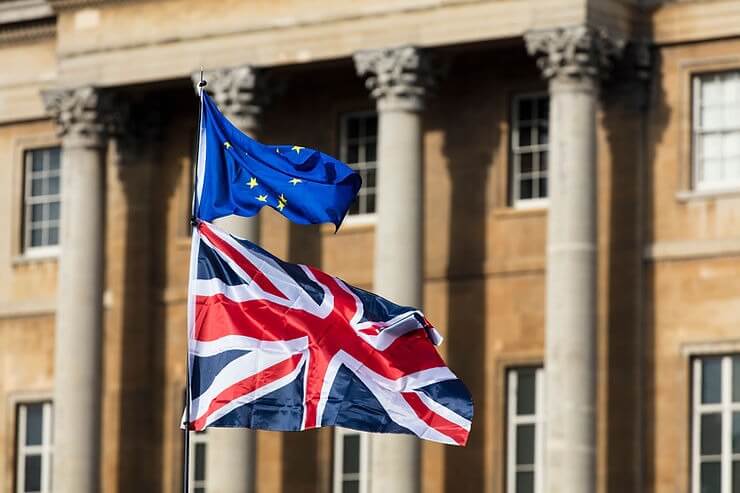
Contents
Post-Pandemic Economic Bounce Back
Britain and every other country in the world have experienced economic hardships in the past 18 months which have not been replicated for decades.
Although the OECD outlook for the recovery of the global economy has improved in recent months, the slow economic rebound is expected to be unbalanced between various global actors.
This disparity between countries is driven by several factors including:
- Public Health Strategy; Domestic vaccine rollout;
- Fiscal and monetary support;
- The prominence of industries which were most affected e.g. hospitality and tourism.
It should come as no surprise that more advanced economies are projects to benefit from rapid access to vaccines and more robust budgetary support. Inversely nations that were heavily reliant on tourism-driven revenue, such as Iceland and Spain, will have a more difficult road to recovery.
Asia-Pacific countries such as China and Australia have put in place excellent containment measures and will continue to recover as long as they continue to immunise their citizens.
Latin America is seeing a mix of both success stories and adversity. According to the OECD Economic Outlook No. 109 Argentina is predicted to see one of the longest periods of recovery due to a combination of factors including high unemployment, stagnant wage rates and notable inflation.
On the other hand, Chile has been leading the way for surrounding countries, having a swift vaccine rollout and the pandemic-resulting increase in export prices has been a major boon for Chile’s emerging market.
It is important to remember that so long as a significant part of the world’s population are not vaccinated and the risk of a new outbreak persists, the possibility of new setbacks and obstacles arising remains ever-present.

The Mental Pandemic
The COVID-19 pandemic has had a major impact on our globe, and the past year has been exceedingly difficult for many people both in their work and personal lives.
Even though vaccines are providing a silver lining to many, the pandemic and the challenges associated with it currently are far from being resolved.
Mental health issues have seen a tremendous spike in occurrence due to constrained physical environments, concerns over employment and finances, fear for loved one’s health and wellbeing, the elimination of many plans to name a few.
Anxiety and Depression Rates within Britain
Globally, anxiety and depression rates have increased dramatically with certain countries reporting the number of sufferers over doubling within 12 months.
A recent study aimed at tackling the mental health impact of the Covid-19 crisis has highlighted the dire state much of the British Population is currently in. With anxiety rates amongst British citizens climbing from 19% pre-COVID to 39% in March -April 2020. This is one of the greatest margin increases found worldwide, with only a few countries (United States, Mexico, and Canada) having a greater proportionate increase.
Depression rates have also increased across the UK have also risen, going from 9.7% to 19.2%, another figure increasing over two-fold. Whilst this number is more comparable to many other countries tested in the study, it is still a very worrying figure.
Some of the most heavily affected groups of people are children, teenagers, and young adults. Before the pandemic, individuals aged between 18 and 29 were already at higher-than-average risk of loneliness. With the disruptions and closures of schools and universities, in conjunction with the restrictions implemented on social connection, this risk has become reality.
Reduced social contact and fewer school hours can have a long-term impact on the plans and prospects of children and young adults, as well as their mental health, to their harm and the detriment of their communities and countries.
These restrictions have been easing in 2021, however, the aftereffect of the restrictions is likely to be felt on many psychologically for years to come.

How Can Governments Help?
OECD countries have made initiatives to improve mental health assistance, including increased resources for phone helplines or fliers, improved access to mental health providers, and more investment for mental health research and development.
Governments should take more steps to address the situation, such as:
- Encourage a comprehensive, whole-of-society approach to mental health that includes both the public and private sectors
- Mental health policy should be revised to better serve young people
- ensure that existing mental health services are maintained and that more mental health services or entitlements are added as needed
- improve awareness of how the workplace – particularly remote working – affects mental health and encourage line managers and executives to participate in mental health training
- Consider boosting the availability of mental health treatment for job seekers through public employment programmes.
The pandemic is still going strong, and nearly 70% of individuals in OECD countries believe their government should be dong more to help. Governments have already taken exceptional steps to assist the victims of the disaster.
Today, they should continue to employ all available resources to ensure that people and businesses continue to get financial support until the economy can be completely reopened.
Countries can also use the OECD framework for assessing mental health system performance in the future to assist them in reducing the burden of mental ill-health on individuals, society, and economies.
The UK government has acknowledged this growing crisis and Miriam Deakin, director of policy and strategy at NHS Providers, which represents NHS trusts, said: “While mental health leaders have told us it is difficult to evidence the extent and drivers of the current pressures, a host of factors related to lockdown and the pandemic, including rising pressure on individuals and families and reduced social support, are key factors.”
Nadine Dorries, the mental health minister, said: “I am acutely aware of how difficult this pandemic has been for many, especially children and young people, and I remain absolutely committed to supporting the mental wellbeing of everyone.”
British Ministers allocated an additional £2.3 billion this year to enhance mental health services, and they unveiled a mental health recovery action plan last month to help the NHS cope with the spike in demand, which has been particularly acute among young people and health-care professionals.

How is the Business Sector of Britain Recovering?
The British government has introduced several schemes and grants to help promote the recovery of the economy and to help businesses stabilise. Some of the major coronavirus loan schemes used previously include:
- The Bounce Back Loan Scheme (BBLS);
- The Coronavirus Business Interruption Loan Scheme (CBILS);
- The Coronavirus Large Business Interruption Loan Scheme (CLBILS).
The most recent Recovery Loan Scheme has launched two months ago, on April 6th, 2021, to provide financial support to businesses across the UK as they recover and grow following the coronavirus pandemic.
Alongside this, a Super-Deduction Tax Break was also introduced as a “direct way to help businesses invest” and “drive growth in the economy” as stated by the UK Chancellor, Rishi Sunak.
As mentioned earlier, countries whose governments are heavily investing in various industries will see a much quicker and more pronounced recovery than countries that lack the capabilities to do so.
These financial aid tools are just a demonstration of the willingness of British institutions to regain lost financial footing and may see the UK come out in a better situation than was initially predicted.
With greater economic stability would come more employment opportunities and a reduction in proportionate inflation. This could help many individuals financially and also take a mental burden away from them.

Vaccine Rates in Britain
The end goal of all countries is to create a future where everyone has been inoculated against COVID-19. Unfortunately, due to supply and demand, all countries can’t receive and employ quick vaccine rollout schemes.
The UK, whilst suffering majorly during lockdown period, has been a world leader in response to effective vaccine programs. The UK has currently seen over 60% of all citizens have received at least one dose of a COVID-19 vaccine.
This figure is outstanding, as it puts the UK in 3rd place globally, only behind Israel and Canada for percentage vaccinated. To give a clear perspective, less than 12% of all world citizens have been vaccinated by June 8th 2021 – The UK has achieved over 500% of this efficiency rating.
Taking into consideration that on June 9th a record million vaccine bookings were made in England when over-25s became eligible for the jab, it would not be a stretch to see the UK taking 1st in vaccination rates in the coming weeks.
This effective rollout would place the UK at the forefront of physical recovery and would allow for numerous industries to fully restart well before other geographical areas. The result of this would be the UK having an opportunity to emerge relatively stronger than its previous position before Covid-19 occurred.





